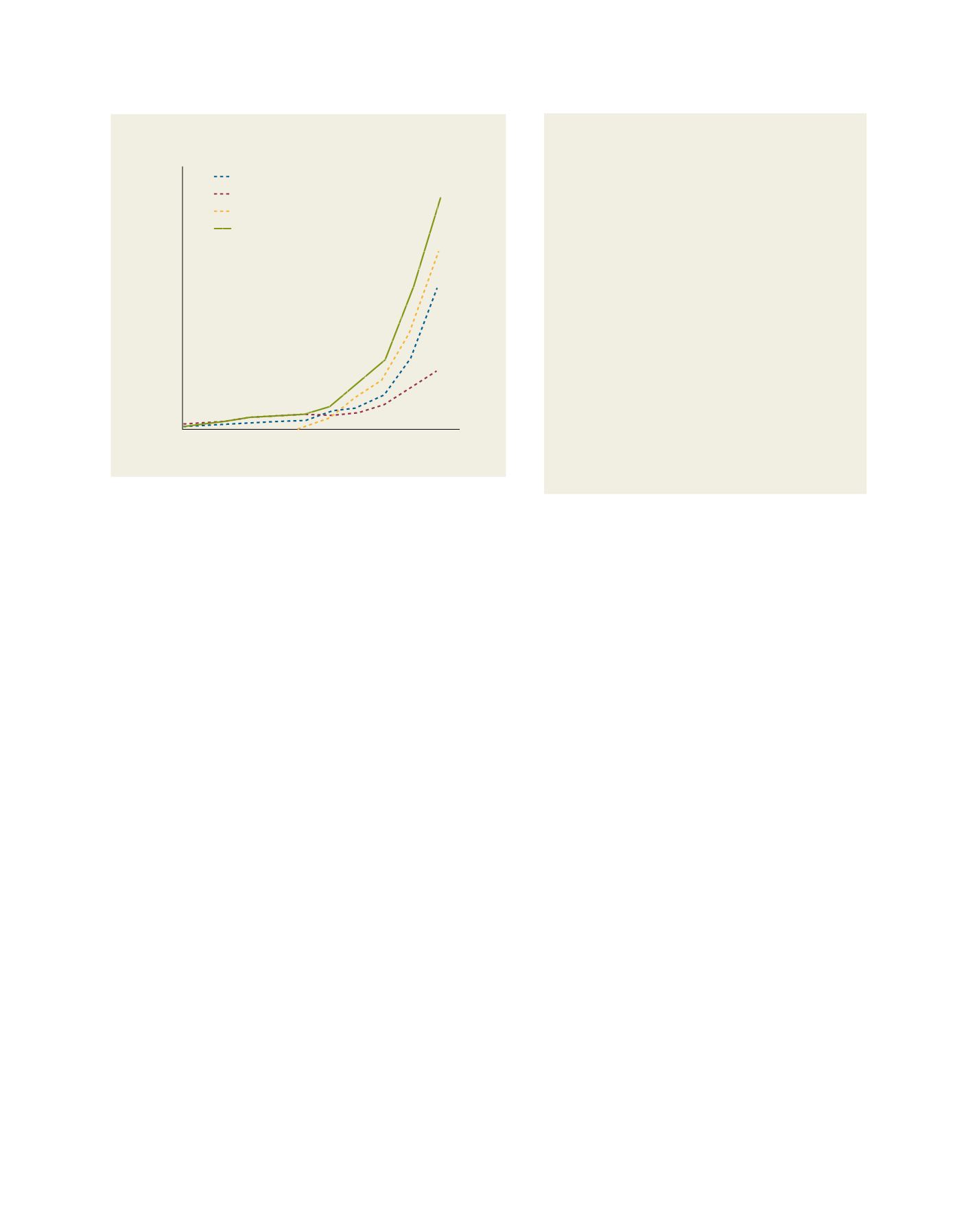

[
] 166
F
inancing
C
ooperation
disadvantaged families in these slums to connect to piped
water and shallow boreholes for safe, reliable drinking
water. Moreover, the WaterCredit programme catalyses
a necessary market adjustment that has the potential to
transform millions of lives as households gain access to
the capital they need to benefit from improved water and
sanitation services.
A unique opportunity
WaterCredit is one example of a microfinance-style
approach to the water and sanitation crisis, which
provides a unique opportunity to address community
residents’ immediate demands and drive large-scale
system change within the sector. By bringing in
other thought leaders and socially-driven businesses,
innovative financing models can address the flawed
system that has limited large-scale and lasting solu-
tions to the water and sanitation crisis. The next
stage of growth will focus on improving investor
confidence in providing finance mechanisms for the
poor – a vast customer base that is overlooked by
the finance industry.
The success of WaterCredit in places like Bangladesh
demonstrates that poverty is not absolute and that a signif-
icant segment of the poor are willing and able to pay for
services when affordable financing is available. As micro-
finance solutions for this crisis are scaled and expanded
in new regions, the level of philanthropic investment
required to incubate this programme will decline, allowing
subsidies to be strategically channelled to the ultra-poor
for whom credit-based solutions may not be viable. If
other organizations join in this solution, we can empower
millions of individuals in underserved communities
to participate in their economy as water and sanitation
customers, and take ownership of their future.
bills, which helps increase the repayment rate. DSK staff provides
critical hygiene education activities, including street plays and
school events, which raise awareness of contributing factors to
water- and sanitation-related diseases. As well as providing critical
health messages, the education activities and training raise aware-
ness about WaterCredit loan products and generate demand for the
loans. DSK found that general ‘community assembly’ programmes
provided a unique way to bring residents together – for example to
watch documentary films on sanitation or organize street plays on
hygiene – creating general ‘camp-like’ atmospheres for residents to
learn about WASH awareness. Once demand is high, loan officers
typically meet with interested borrowers to fill out an application
and create a repayment plan. The borrower’s family can then benefit
from a household or community-level water connection and/or
toilet, depending on their needs.
Through its WaterCredit programme with DSK,
Water.orgcontrib-
uted financial resources and provided monitoring information systems
training to staff. DWASA provided capacity building and training on
water and sanitation services, which enabled DSK to send community
development officers out to work with targeted slums.
Water.organd
DSK realized the programme created a winning situation for all parties:
the government utility wanted paying water customers and to fulfil its
mandate, while slum residents wanted to have local, legal access to
available services.
Water.organd DSK continue to carry out this programme to extend
the reach of local utilities’ established water networks in these slum
communities, and demonstrate that those living at the BOP represent
a reliable customer base. As a result, more than 60,000 slum residents
no longer have to pay an exorbitant price for safe water from illegal
vendors and instead have financed their own household or commu-
nity-level solution. This work would not be possible without the
constant cooperation between a government utility, an eager, socially
driven NGO and smart philanthropy from donors such as Johnson
& Johnson. Through DWASA’s engagement in the process, Water.
org and DSK can continue to provide WaterCredit loans that enable
Value of loans disbursed
5
10
15
20
25
30
US$ (million)
Year
2004 2006 2008 2010 2012
Smart subsidies to MFIs
Commercial capital leveraged
Total capital invested in WaterCredit
WaterCredit investment since 2004, including smart subsidies,
commercial capital, and value of loans disbursed
Source:
Water.orgSuccess story: Banesa
Before experiencing the joy of a toilet, 48-year-old Banesa
Begum and her family of five had no choice but to defecate in
the open or share an unhygienic hanging latrine with neighbours.
Hanging latrines are shoddy structures often made out of
bamboo that sit a few feet above the ground. The human
waste is not contained or treated and often enters into the
water sources, causing disease.
Banesa and her family never had privacy. They endured
horrible smells and suffered with dysentery, diarrhoea and
worms. While Banesa’s family desired a toilet, it was not a
possibility because they were trapped in the cycle of poverty,
barely making ends meet.
Water.organd DSK visited the Fulbaria slum in Dhaka,
Bangladesh, where Banesa lives. They met with the
community and held awareness programmes about the
dangers of hanging latrines and open defecation. And best of
all, they offered an affordable solution through WaterCredit.
Banesa and other community members decided to take out a
WaterCredit loan and install a hygienic toilet. They borrowed BDT
60,000 (US$799) and built a community latrine. Today, all of the
family members have privacy. There is no longer a pungent smell
and the children are able to use a toilet safely. All are happy to
finally have a toilet, and no longer struggle with disease. Health
has come to Banesa, her family and her community.


















